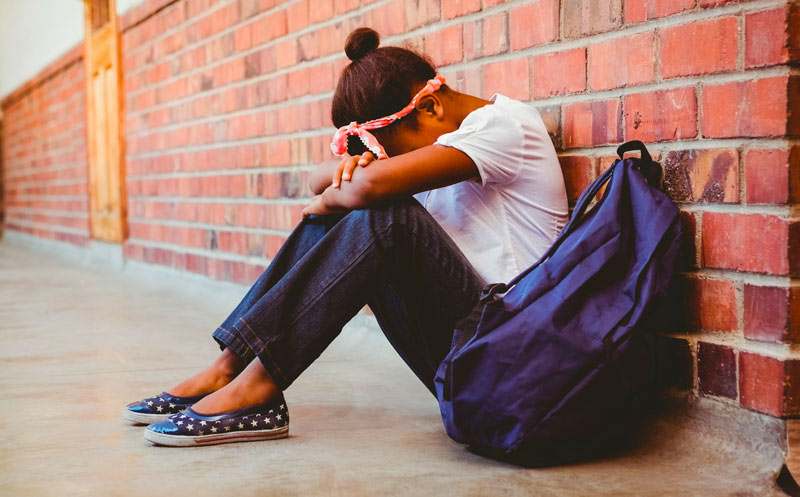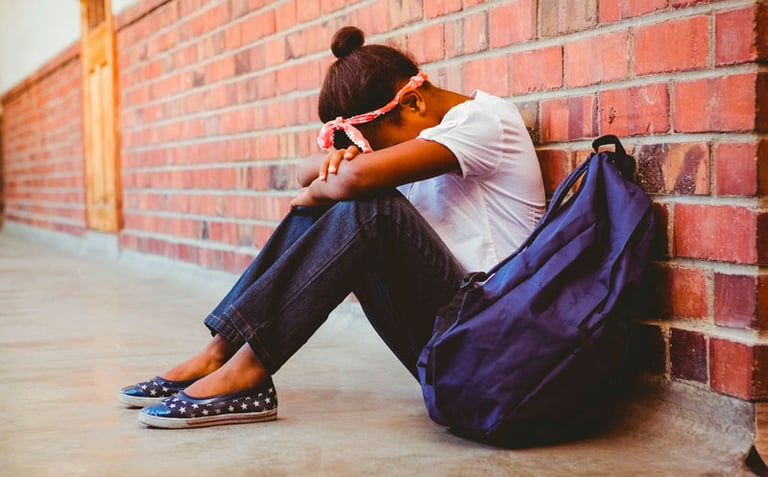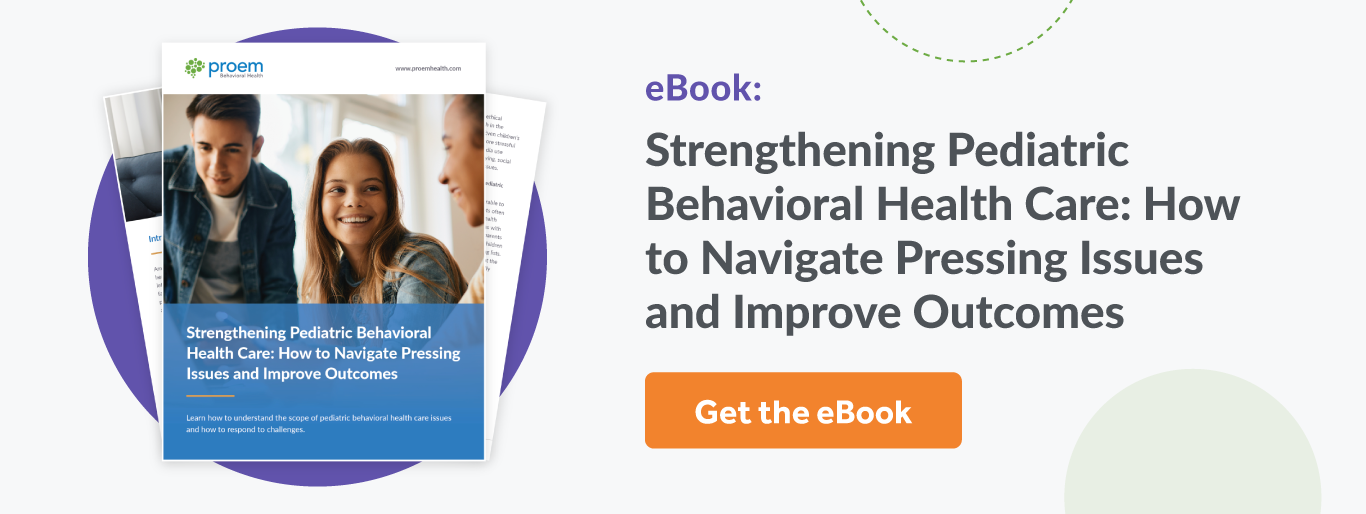America's youth mental health crisis is well recognized, yet the causes of mental illness in youth have often been elusive and, recently, often wrongly attributed solely to the impacts of the COVID-19 pandemic. While the pandemic has certainly exacerbated mental health issues among children, the mental health crisis had firmly taken hold well before the pandemic. The pandemic, though, has served to shine a brighter light on the issue, leading to an increased focus on the pediatric mental health crisis and encouraging those who work with children and in mental health care to take a deeper look at what is driving mental illness in this population.
Consider these eye-opening statistics alone: The peak age of onset for mental disorders is 14.5 years, with nearly 50% of mental illnesses emerging by the age of 18, according to a meta-analysis of 192 studies. Mental health in teens statistics points to an alarming increase in suicide attempts — a 36% increase between 2009 and 2019.
It's never too early to evaluate our children, Proem is a proponent of screening everyone for their mental health annually as we would for physical health. Screen them, talk with them, and seek professional help if you are concerned about them.
But what's fueling today's pediatric mental health crisis? Here are five of the most significant contributing factors.
Isolationism's Significant Impact on Causes of Mental Illness in Youth
One way the COVID-19 pandemic had a substantial impact on youth mental illness was the rapid rise in isolation. One literature review found that there is a "strong association between social isolation and anxiety and depression in children and adolescents." The pandemic forced many institutions to close, including schools, and activities to cease, including those designed for children and adolescents. Seemingly overnight, America's youth was forced indoors and had limited, in-person contact with others.
Isolation also leads to increasing rates of substance abuse, as has been seen during the pandemic. While increases were seen even prior to COVID-19, "7.74% of U.S. adults and 4.08% of youth had a substance use disorder in the past year," according to "The State of Mental Health in America" Study. "Substance use increased 0.07% for adults and 0.25% for youth over last year's report."
Mental Health in Children Strained Due to Increased Awareness of World Stressors
Children today are increasingly aware of issues around the world — exposed to news daily through an almost 24/7/365 news cycle fueled heavily by social media. This constant barrage of news can take a toll on mental health in children as well as adults. "Children exposed to conflict, natural disasters and other humanitarian crises can suffer severe psychological and social consequences," according to UNICEF.
The pandemic is just one example of a news development that can lead to these consequences. Current crises ranging from war to mass shootings capture and maintain the attention of all of us. These issues can contribute to the youth mental health crisis in America and have a particularly damaging impact on children who understand little of what they're seeing.
Immediate Stressors at School Are Increasing the Youth Mental Health Crisis in America
Children face a variety of stressors at school, including the increased potential for violence and school shootings, and the potential for bullying, which can also occur in virtual environments. In fact, social media has dramatically impacted the volume and impact of bullying on children.
Research on the impacts of social media indicates that its use is associated with issues related to body image concerns, eating disorders and cyberbullying, among others. In addition, today's children are also being impacted by "culture wars," with schools becoming flashpoints on issues such as vaccination, racial justice, LGBTQ rights and book banning.
NPR also dove into the impact of the COVID-19 pandemic on schools and children in this report.
Lack of Access to Pediatric Behavior Health Services
One of the most substantial but often underappreciated contributors to the pediatric mental health crisis is a lack of access to mental health services for children and adolescents. Such inadequate access creates challenges for providers, parents, teachers and others to give children the behavioral health support, aid and treatment they need.
According to The State of Mental Health in America:
- More than 60% of children with depression do not receive any mental health treatment.
- Even those receiving some treatment may not receive consistent care; only 27% do.
- Lack of adequate health insurance is a big issue. Nationally, 1 in 10 youth covered under private insurance lack coverage for mental or emotional difficulties.
Another big issue stifling access is that primary care providers who are on the frontline in addressing pediatric behavior health issues are facing their own challenges, including lack of adequate resources to support their patients, growing demand for their time and suboptimal reimbursement, among others. In addition, these physicians and the systems they work with are stressed by increasing numbers of mental health problems in schools. The NRP report cited earlier notes, "Indeed, healthcare providers across the country are seeing more referrals with cases that go beyond schools' capacities."
Even before the pandemic, many children with mental health needs were not receiving care, according to the Kaiser Family Foundation. Reasons cited included "costs, lack of providers, and limited insurance coverage." It's possible, as the report suggests, "that access to mental health care — like access to all health services — worsened during the pandemic."
Pediatric Mental Health Solutions
There are some promising efforts to address the young mental health crisis. For instance, Sound the Alarm for Kids is an initiative from the Children's Hospital Association (CHA), American Academy of Pediatrics (AAP) and American Academy of Child and Adolescent Psychiatrists (AACAP) to persuade Congress to enact legislation and increase funding to address the national pediatric mental health crisis.
NAMI has created NAMI Next Gen, a young adult advisory group of 10 young adults from around the country who will be providing input on how NAMI can innovate through its work with youth and young adults.
Technology companies like Proem Behavioral Health are also playing important roles in helping to address the mental health crisis among youth as well as adults. The Proem behavioral health solution provides the screeners, diagnostic interviews, monitors, scales and measurements required to more accurately screen and assess children starting at the age of 6, enabling early diagnosis and treatment of mental health disorders. To learn more, request your demo of Proem.





.png)










